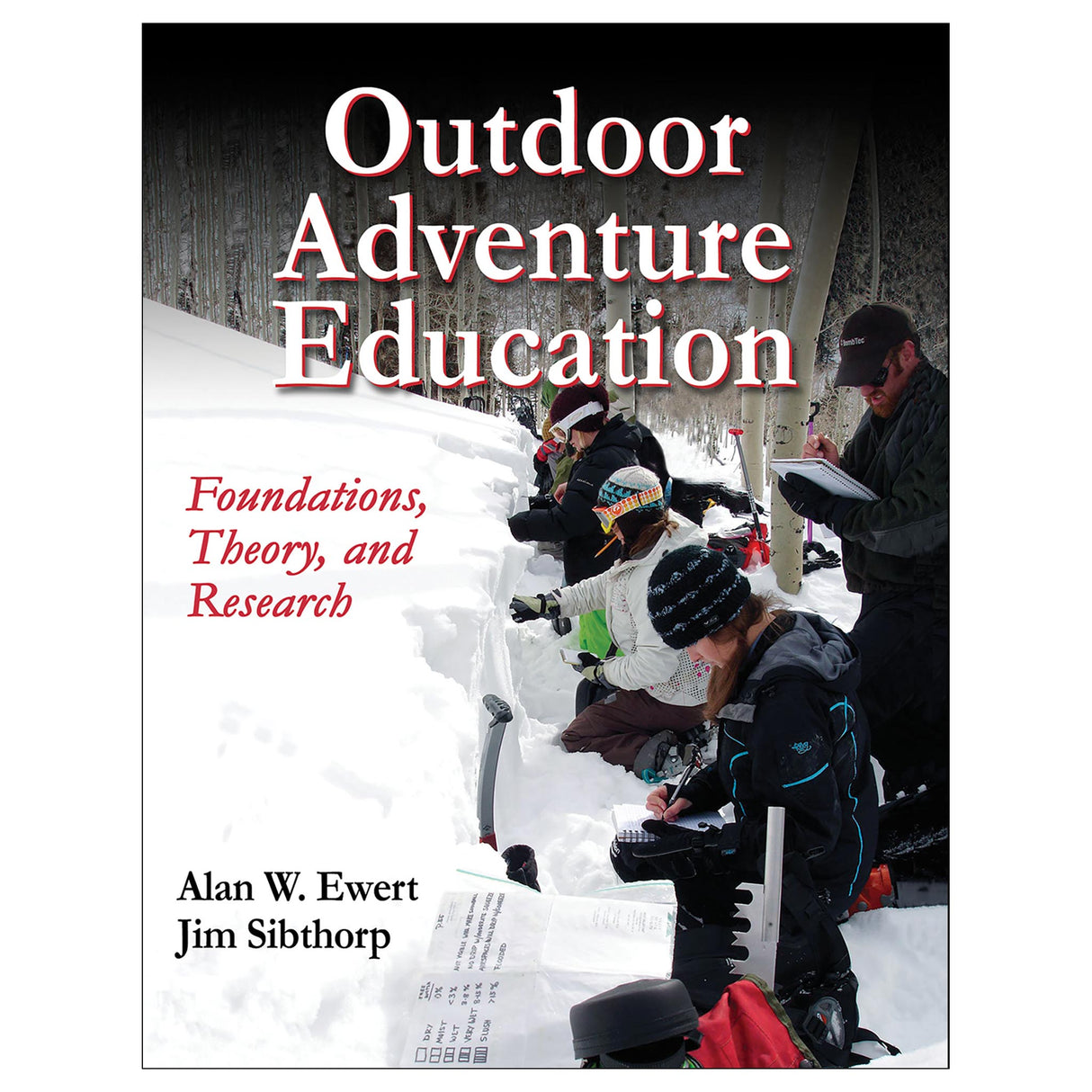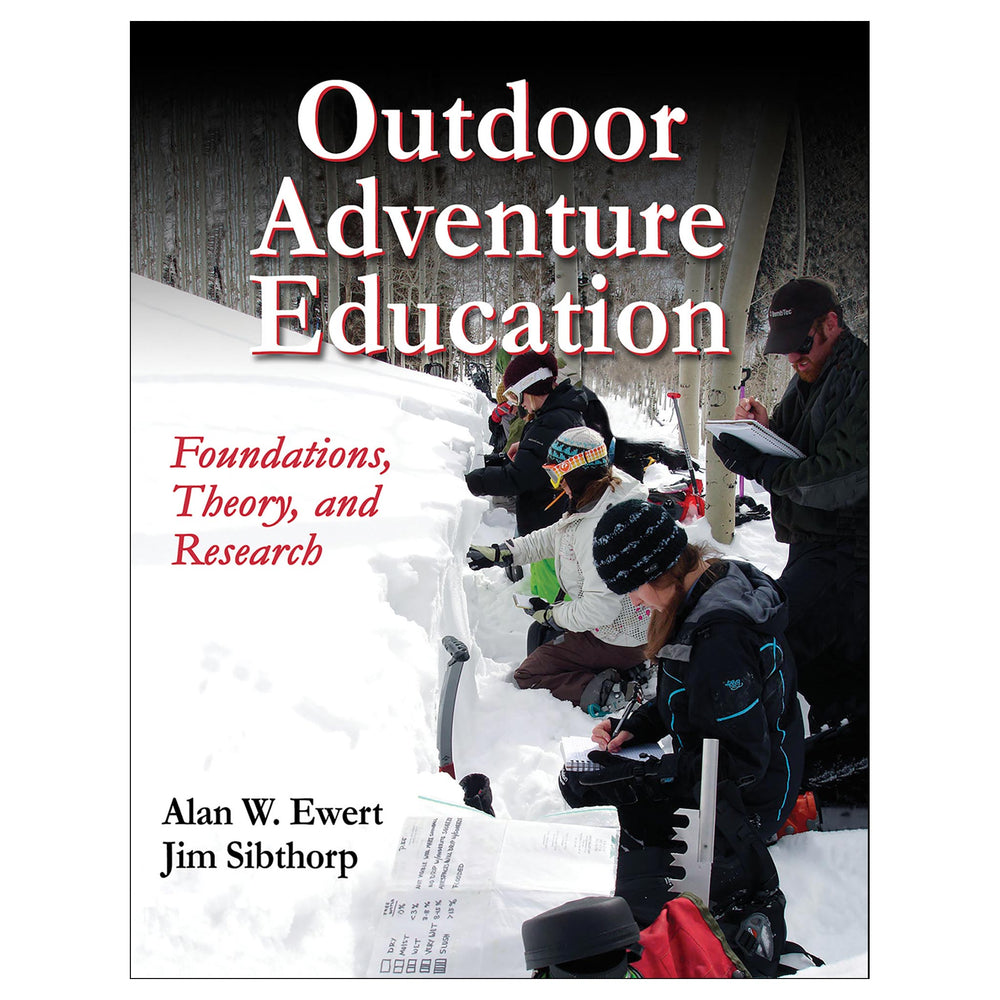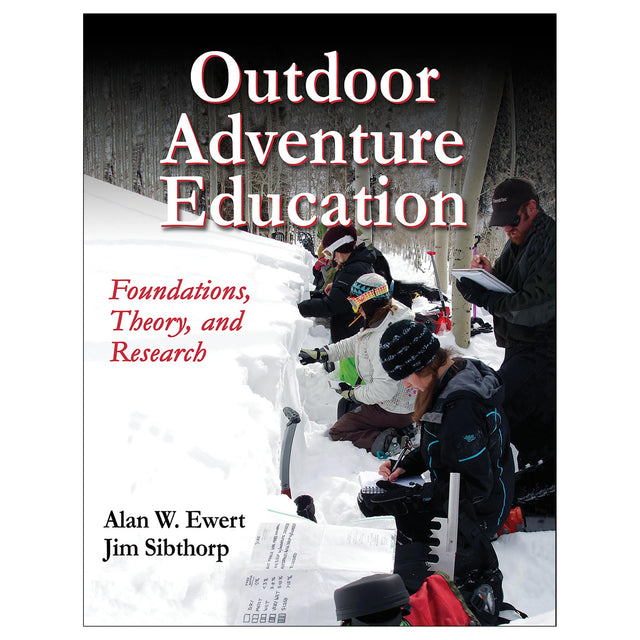Outdoor Adventure Education
Foundations, Theory, and Research
Author: Alan Ewert, Jim Sibthorp
$39.00 CAD
Outdoor Adventure Education: Foundations, Theory, and Research steeps students in the theories, concepts, and developments of outdoor adventure education, preparing them for careers in this burgeoning field.
This text is based on author Alan W. Ewert’s pioneering book Outdoor Adventure Pursuits: Foundations, Models, and Theories. Ewert and Sibthorp, both experienced practitioners, researchers, and educators, explore the outdoor adventure field today in relation to the changes that have occurred since Ewert’s first book. The authors present a comprehensive text on outdoor and adventure foundations, theories, and research that will provide the basis for the next generation of professionals.
Outdoor Adventure Education offers a comprehensive view of the expanding discipline of outdoor adventure education in its various settings. In addition to its foundational, theoretical, and conceptual insights, this text presents the following:
• Why This Chapter Is Important introductions that present snapshots of ideas and concepts and how they apply to future professionals
• Chapter discussion and research questions to expand knowledge and research skills to support the learning gained through the book
• Sidebars from well-known international researchers who present their views on the chapter topics
The book is presented in three parts. Part I explores foundational issues of outdoor adventure education, offering an overview of the field and examining both historical developments and current practices. Part II investigates theoretical constructs and extant theories, emphasizing how they inform the professional’s view of program evidence, design, and implementation. In part III, the authors delve into research and evidence-based practices in the field and look at evolving trends and issues as outdoor adventure education continues to grow.
Outdoor Adventure Education uses evidence, design, and implementation as its underlying themes. It shows students and professionals how to apply theories and research in constructing frameworks for outdoor adventure education experiences and how to evaluate those experiences. As such, it is an indispensable resource that prepares students and professionals alike for success in their careers in outdoor adventure education.
Audience
Text for upper-undergraduate and graduate programs in outdoor and adventure studies. Reference for outdoor and adventure education professionals and physical educators.
Part I Foundations
Chapter 1. Overview of Outdoor Adventure Education
Defining Adventure
Defining Outdoor Adventure Education
Types of Definitions
Evidence, Design, and Implementation
Summary
Issues for Further Discussion
Chapter 2. History of Outdoor Adventure Education
Early Explorers and Adventure Seekers
Exploration and the Quest for Adventure
Adventure in Transition
The Concepts of Leisure and Recreation
The Advent of Adventure Recreation
Formalized Schools of Adventure Education
Summary
Issues for Further Discussion
Chapter 3. Outdoor Adventure in Contemporary Practice
Programs and Practice
Components of the OAE Experience
Philosophical Basis
The Adventure Progression
Summary
Issues for Further Discussion
Chapter 4. Managing Motivation, Risk, Fear, and Stress
Motivations in OAE
Risk and Risk Taking
Fear in OAE
Summary
Issues for Further Discussion
Part II Theory
Chapter 5. Theoretical Constructs Used in Outdoor Adventure Education
Theory and Model Development
Dissecting the Concept of Theory
Models in Outdoor Adventure Education
Summary
Issues for Further Discussion
Chapter 6. Extant Theories and Key Constructs in Outdoor Adventure Education
Promising Explanatory Frameworks
Key Theories
Key Learning Constructs
Summary
Issues for Further Discussion
Chapter 7. Development Across the Life Span
Youth and Adolescents
Emerging Adults
Adults
Older Adults
Additional Views of Human Development
Summary
Issues for Further Discussion
Part III Research
Chapter 8. Evaluation Research
Common Purposes of Evaluation
Case Study: The WRMC Incident Reporting Database
Common Evaluation Techniques
Alternative Evaluations: Best Practices and Benchmarking
Common Limitations
Summary
Issues for Further Discussion
Chapter 9. Outcomes of Participation
Common Participation Outcomes
Program Qualities
Summary
Issues for Further Discussion
Chapter 10. State of OAE Research
The Role of Research
Early Research in OAE
OAE Research Matures
Current Trends
Summary
Issues for Further Discussion
Chapter 11. Improving Research
Challenges in OAE Research
Strengthening Research
Summary
Issues for Further Discussion
Chapter 12. Evolving Trends and Issues
Changing Levels and Types of Use
Impacts of Technology
Changing Values
Consumerism
Future Challenges
Summary
Issues for Future Discussion





